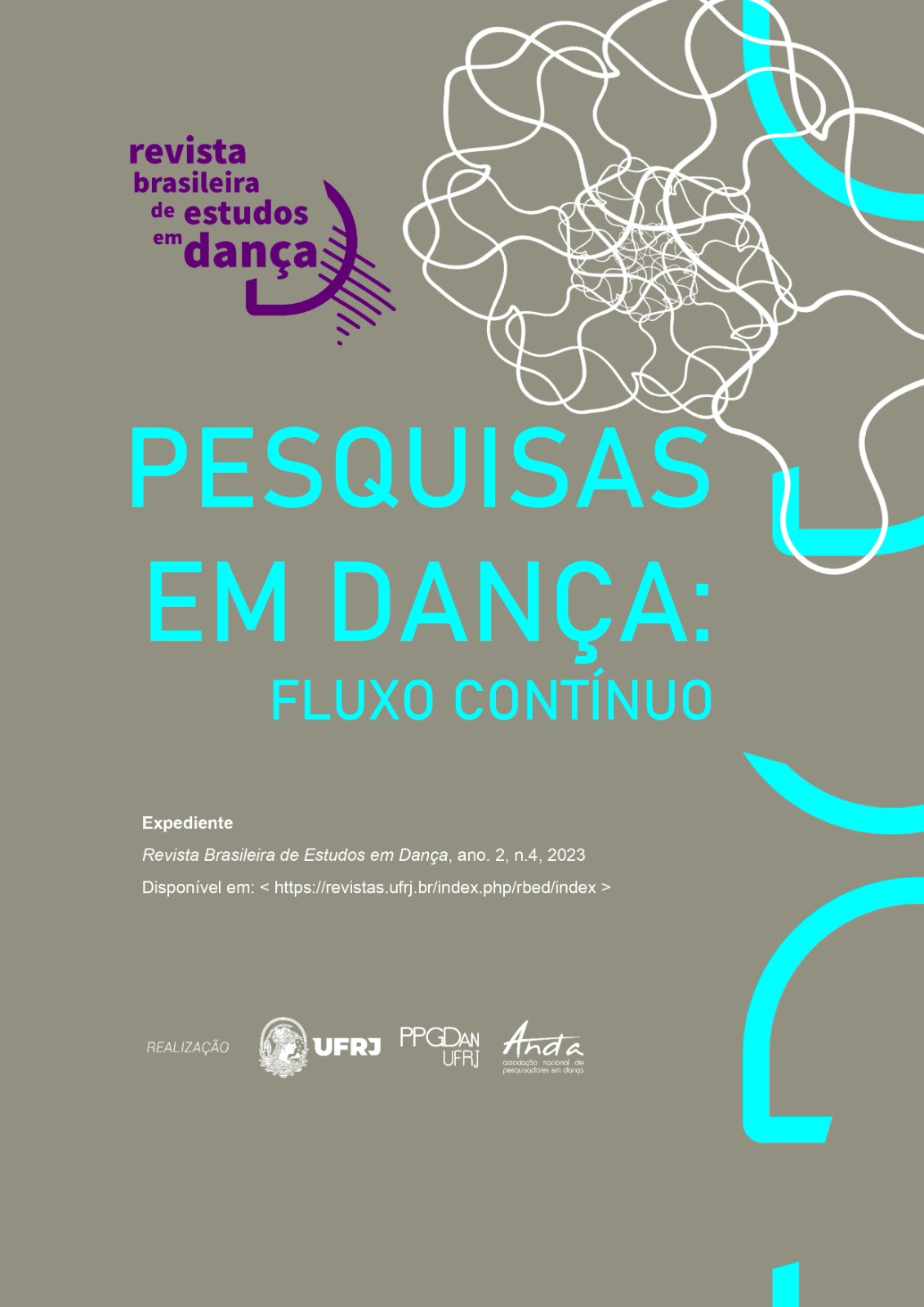Jongo and Mental Health: speech as a cultural expression without racial boundaries
DOI:
https://doi.org/10.58786/rbed.2023.v2.n4.59521Keywords:
Jongo, Expressão Cultural, Dança, Saúde Mental.Abstract
The idea for writing this article came from the course PSC6064-1 Mental Health and Racism: Interventional Practices in the Field of Psychology and Psychoanalysis, taught simultaneously in nine universities in the online modality promoted by ANPSINEP - National Articulation of Black Psychologists and Researchers, with weekly synchronous classes, in a collective project to form networks on this subject. During the classes, a number of subjects were presented and the one that interested me the most was the topic that made it possible to open up a space for black students in universities, while at the same time embracing welcome, socialization, culture, creativity, well-being and mental health: Jongo. It is a form of Afro-Brazilian expression that integrates drum percussion, collective dance with a lot of rhythm and joy in its verses and movements. It is practiced in the urban peripheries and in some rural communities in southeastern Brazil. Based on this collective dance, we will promote a reflection in the light of psychoanalytic theory on the benefits of bodily expression and singing, in a space of speeches, cultural trajectories and everyday experiences that can contribute to cultural transmission in a space of exchange between knowledge of immaterial knowledge.
References
BRASIL. Lei Federal no 10.639, de 09 de Janeiro de 2003. Altera a Lei n.o 9.394, de 20 de dezembro de 1996.
CNE/CP Resolução 1/2004. Diário Oficial da União, Brasília, 22 de junho de 2004, Seção 1, p. 11.
COSTA, Rute Ramos da Silva e FONSECA, Alexandre Brasil: O processo educativo do jongo no quilombo machadinha: oralidade, saber da experiência e identidade. Educação & Sociedade [online], v. 40, 2019.
CUNHA, João Alipio. Gestos e posturas: dançando com os espíritos. Religião e Sociedade [online]., v. 41, n. 03, 2021, [Acessado 30 Junho 2022], pp. 145-168. Disponível em: <https://doi.org/10.1590/0100- 85872021v41n3cap06>.
DIAS, Paulo: O lugar da fala conversas entre o jongo brasileiro e o ondjango angolano. Revista do Instituto de Estudos Brasileiros [online]. 2014, n. 59 [Acessado 30 Junho 2022] , pp. 329-368. Disponível em: <https://doi.org/10.11606/issn.2316-901X.v0i59p329-368>.
FREUD, S. (1919a[1918]). Nuevos caminos de la terapia psicoanalítica. AE: 17, p. 155ss; SB: 17, p. 201ss (Título em alemão: “Wege der pychoanalytischen Therapie”, SA: Ergänzungsband [volume complementar], p. 239).
FOCHESATTO, Waleska Pessato Farenzena. A cura pela fala. Estudos de Psicanálise, (36), 165-171, 2011.
HERSCHMANN, Micael e FERNANDES, Cíntia Sanmartin. Resiliência e polinização da música negra que vem ocupando os espaços urbanos do Rio de Janeiro. Galáxia, n. 46, 2021. [Acessado 30 Junho 2022] , e48336. Disponível em: <https://doi.org/10.1590/1982-2553202148336>.
IPHAN, Programa Nacional de Patrimônio Imaterial, in http://portal.iphan.gov.br/uploads/publicacao/Jongo_patrimonio_imaterial _brasileiro.pdf. Acesso em 30 de junho de 2022.
IPHAN, Programa Nacional de Patrimônio Imaterial, in http://portal.iphan.gov.br//uploads/publicacao/PatImDos_jongo_m.pdf. Acesso em 30 de junho de 2022.
MAROUN, Kalyla: Jongo e Educação Escolar Quilombola: diálogos no campo do currículo. Cadernos de Pesquisa. v. 46, n. 160, 2016. [Acessado30 Junho 2022] , pp. 484-502. Disponível em: <https://doi.org/10.1590/198053143357>.
MONTEIRO, Elaine e REIS, Maria Clareth Gonçalves: Patrimônio Afro- Brasileiro no Contexto da Educação Escolar Quilombola. Educação & Realidade. v. 44, n. 2, 2019. [Acessado30 Junho 2022] , e88369. Disponível em: <https://doi.org/10.1590/2175-623688369>.
MONTEIRO, E., SACRAMENTO, M. Pontão de Cultura de bem registrado e salvaguarda de Patrimônio Imaterial: a experiência do Jongo no Sudeste. Políticas culturais: teorias e práxis. 2010.
MORIN, Edgar. Consciência Mundial: por um conceito de desenvolvimento para o século XXI. Evento Edgar Morin no Sesc Consolação, São Paulo, 3 jul. 2012. Disponível em <http://www.edgarmorin.org.br/imgul/25072012155556598329138.pdf>.A cesso em: 17 de julho de 2022.
Parecer Homologado. Despacho do Ministro, publicado no Diário Oficial da União de 19/5/2004. Resolução No 1, de 17 de junho de 2004. Acesso em 15 de junho de 2022. http://portal.mec.gov.br/cne/arquivos/pdf/003.pdf
PEREZ, Carolina dos Santos Bezerra. Juventude, música e ancestralidade na comunidade jongueira do Tamandaré - Guaratinguetá/SP. Imaginário, 11(11), 247-276, 2005. Recuperado em 30 de junho de 2022, de http://pepsic.bvsalud.org/scielo.php?script=sci_arttext&pid=S1413- 666X2005000200012&lng=pt&tlng=pt.
SAHÃO, Fernanda Torres; KIENEN, Nádia. Adaptação E Saúde Mental Do Estudante Universitário: Revisão Sistemática Da Literatura. Psicologia Escolar e Educacional, 25, 2021.
SILVA, Adailton da. Relatos sobre o Jongo: reflexões e episódios de um pesquisador negro. 2006. 180 f., il. Dissertação (Mestrado em Antropologia Social) -Universidade de Brasília, Brasília, 2006. https://repositorio.unb.br/handle/10482/5570. Acesso em 30 de junho de 2022.
SCHIFFLER, Michele Freire: Sobre Bakhtin, quilombos e a cultura popular. Bakhtiniana: Revista de Estudos do Discurso. v. 12, n. 3, 2017. [Acessado 30 Junho 2022], pp. 76-95. Disponível em: <https://doi.org/10.1590/2176-457332347>.
Published
How to Cite
Issue
Section
License
Authors who publish in the Revista Brasileira de Estudos em Dança are
responsible for the content of signed articles and retain copyright.
They grant the journal the right of first publication with the work simultaneously
licensed under the Creative Commons Attribution-NonCommercial 4.0 License
(Open Archives Initiative - OAI). This feature, used for open-access journals,
allows sharing work for non-commercial purposes and acknowledges
authorship. If the text is later published in another vehicle, the author
must inform that it was initially published as an article in the Revista Brasileira
de Estudos em Dança. Therefore, even if the journal owns the first publication,
authors are entitled to publish their work in institutional repositories or on
their personal pages, even if the editorial process has not been completed.
The journal reserves the right to make normative, orthographic, and grammatical changes to maintain the language standard, respecting the authorial style.

